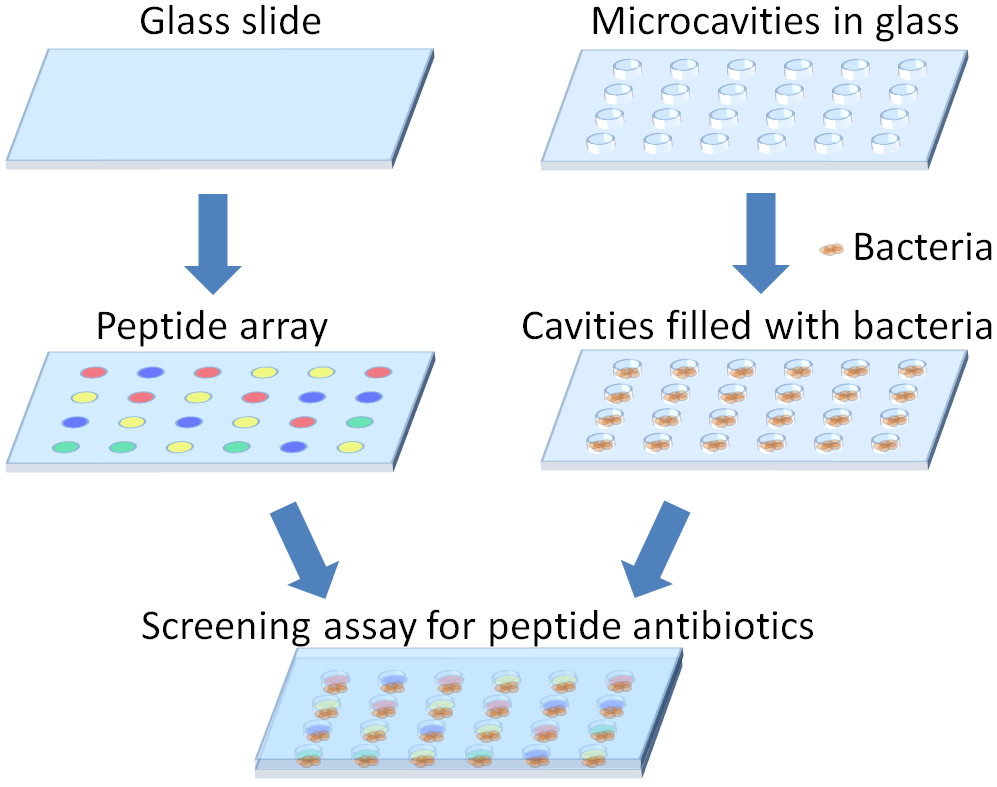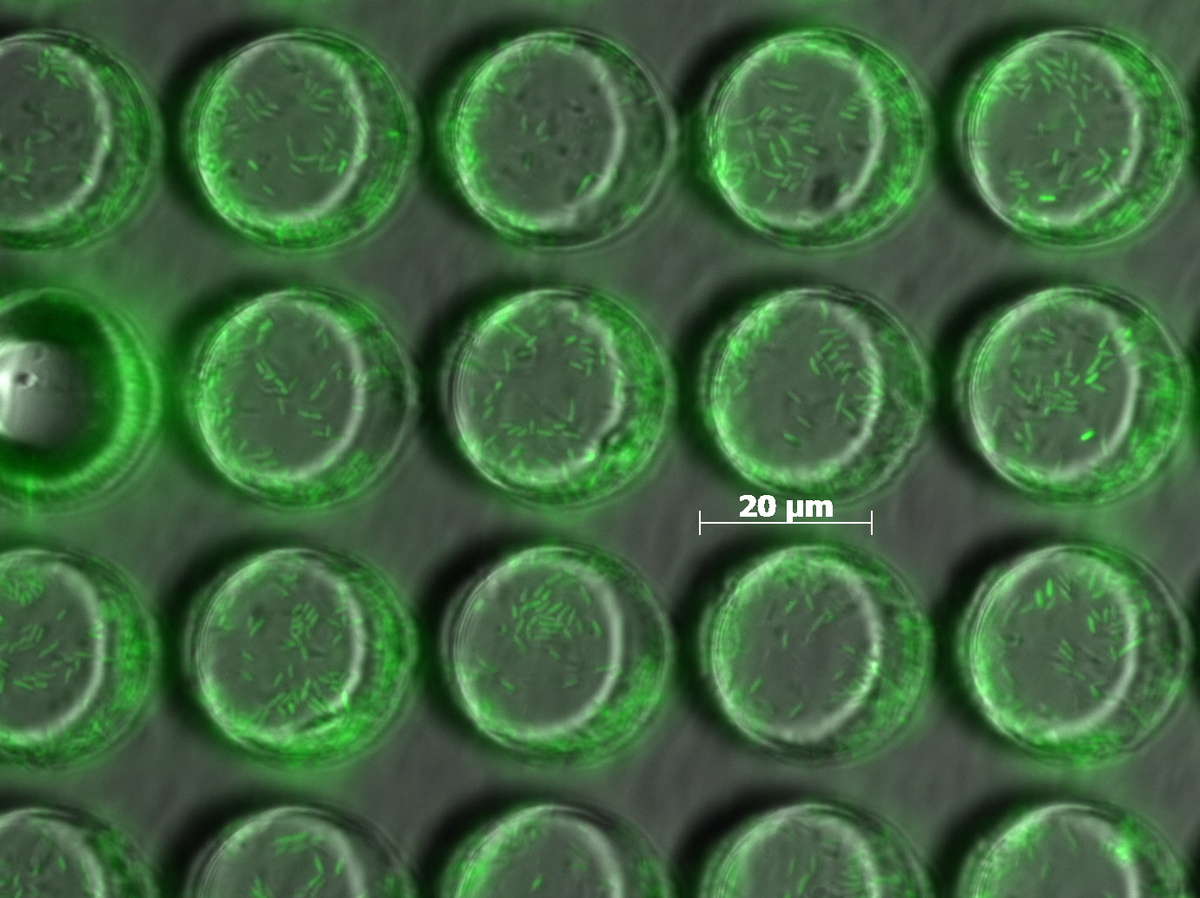Micro Peptide Arrays for High-Throughput Antibiotic and Biofilm Inhibitor Screening
Increasing bacterial drug resistance and the lack of new antibiotics have the potential to inflict a major burden on society and the health care system: Bacterial infections, easily treatable since the discovery of penicillin in the 1940s, turn into life threatening diseases. The formation of highly antibiotic tolerant biofilms is one of the major resistance mechanisms in bacteria. To tackle this problem, the physicist
Dr. Felix Löffler and micro biologist Dr. Jörg Overhage develop a novel in vitro assay for highthroughput screening of peptides as highly effective antibiotics and biofilm inhibitors.
In this grant, a novel and highly flexible highdensity array technology was used for the production of peptide arrays on glass substrates. By cleaving the peptides from the substrate in a gas phase, the peptides are able to diffuse and interact with human pathogens. In the next step, human pathogens were transfected to express a fluorescent marker, which is only expressed if the bacterium is alive.
These "reporter" bacteria were deposited into microstructured cavities of a glass substrate. Contacting the cleaved peptides of the array with the bacteria, cultured in the microcavities, we initiate the interaction of these bacteria with the peptides and monitor the bacterial viability status and biofilm growth via fluorescence signals.
This novel assay will allow us to screen several ten thousands of potential peptides for their activity as an antibiotic and biofilm inhibitor. As a result from these preliminary experiments, we have submitted a joint grant proposal, which is currently under revision. We believe that this technology has a very high potential to become an important tool in pharmaceutical drug discovery screenings.


